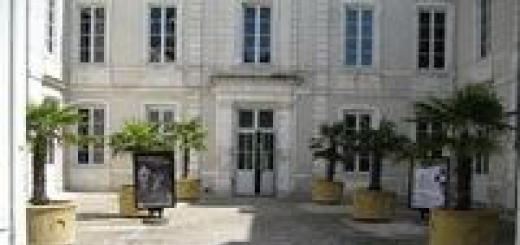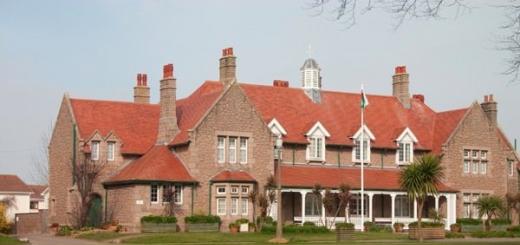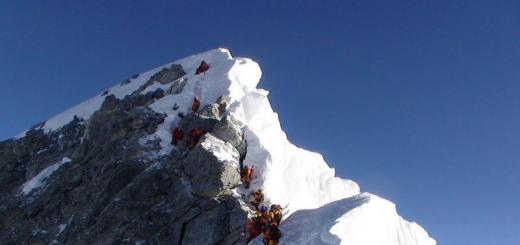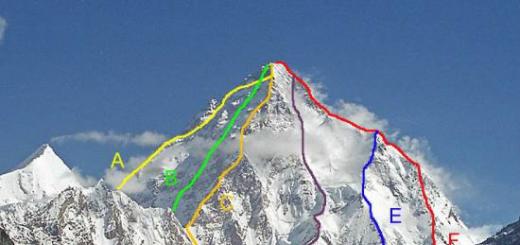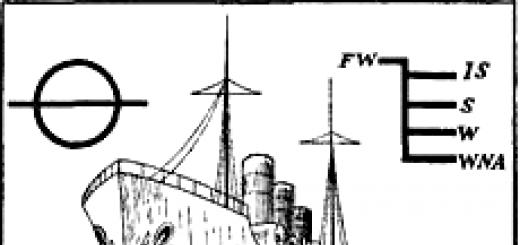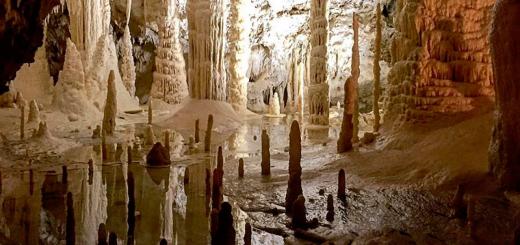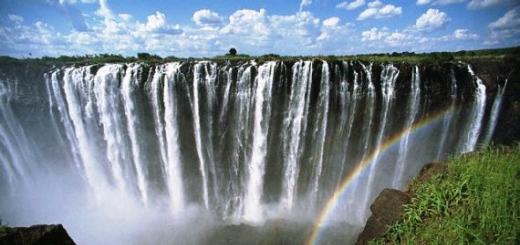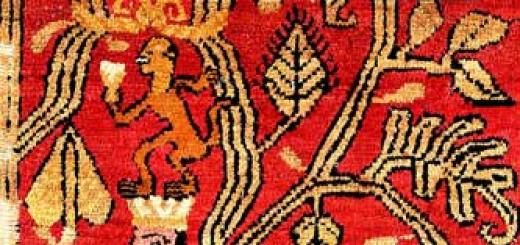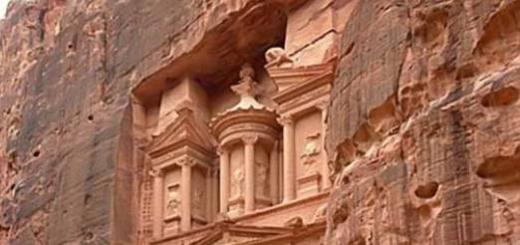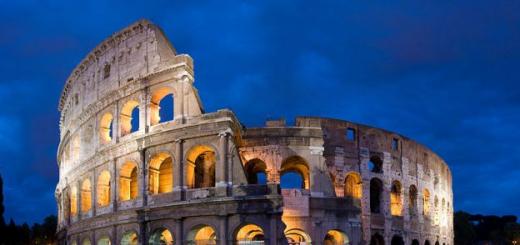Not all of us have heard of such an amazing settlement as Dzhubga. The sights of this city, unfortunately, are not included in the list of the most visited places in our country.
And, I must say, completely in vain, because this resort, in addition to a unique and healing climate, in fact, can also boast of an exciting history of origin, mysterious legends and unusual objects that attract the attention of travelers not only in our country, but also abroad.
This article will tell in detail about the village of Dzhubga, the sights and entertainment of which cannot but become the object of close attention from future travelers. In addition, the reader will receive valuable information about geography, climate, history, legends and interesting places resort.
general information
It is which, on the whole, are modest and at first glance inconspicuous, the first to meet guests on the Moscow highway on the way to the main resorts Krasnodar Territory.
The village is located in the Tuapse district, about 60 km from Tuapse and 110 km from Krasnodar. The urban settlement, which is part of the recreation area, is the resort village on the coast closest to the regional center.
Love to spend weekends here locals and citizens, as well as many tourists who are attracted by the natural landscapes of Dzhubga, mild climate, warm sea and spacious beaches.
Geography and climate
The universal map of Dzhubga (with sights and access roads) shows that locality is located at the mouth of the river of the same name on the shore of the Black Sea bay, surrounded by mixed forests.

From Krasnodar to the village there are highways (M4 and M27), both having a length of about 110 km each. The path passes through Adygeysk, Hot key and Caucasian passes.
It should be noted that the beaches in the resort are sandy and sandy-pebble. All of them are wide enough, so it is convenient to rest on them even for large companies.
The climate is subtropical, Mediterranean type. Summers are dry and hot, while winters are warm and humid.
As a rule, autotourists who go on vacation to the village of Dzhubga are interested in sights no more than the presence of autocamps and camp sites.
The ideal place for accommodation, according to many travelers, is the Zarya camp site for motorists, which offers summer houses and buildings for 700 people (in winter - 425).
Here, on the coast, there is also a boarding house "Dzhubga", which has its own equipped beach.
How to get to the resort
There is no railway connection in Dzhubga, and the nearest airport is located in Krasnodar. Regular buses run from the Krasnodar-1 bus station, located next to the railway station, to the village. The journey takes about 2.5 hours. The ticket price depends on the route (100-150 rubles).

From other cities of Rostov, Sochi, etc.) there are direct bus routes. From and Hot Springs are also sent fixed-route taxis(fares practically do not differ from bus routes).
It is best to get to Dzhubga by private transport, which is convenient to travel to the beaches and bays. The quality of the roads is good, and the track is easy to navigate. Only during the season, you should check in advance the availability of parking lots near the accommodation, as at this time there are a lot of cars in the resort.
History of the village
Talking about interesting places in Russia, one cannot fail to mention the village of Dzhubga. Sights, excursions and trips around this city are somehow connected with its history.
And the very name of the settlement came from antiquity, in translation from the Adyghe language it means “valley of the winds”. Although there are other translations: “flat place”, “a place where fog spreads” and even “night beauty”.

The village of Dzhubgskaya was founded at the mouth of the river in 1864, after the eviction of the native inhabitants - the Shapsugs. The village was the headquarters of the Shapsug coastal battalion.
Initially, about 360 people (65 families) lived here. Now the Stanichka microdistrict is located on these places. After the liquidation of the battalion in 1870, the settlement was renamed the village of Dzhubga, which later became a village.
By 1905, the village consisted of 74 households of Russian peasants. The main impetus for the development of the village was the construction of a steamship company. Customs, post office, telegraph and visiting summer residents appeared in the settlement.
In 1935, a rest house was opened in Dzhubga. At the same time, a park was founded, which adorns the village today. And in 1966, the settlement was given the status of a resort village.
The coast of Dzhubga is located between Cape Shapsuho and the town of Hedgehog, which, according to the plan, actually looks like a prickly animal.
She herself got her name in honor of the first Christian preacher who appeared in the 5th century on the island. Little is known about his fate.
Features of local hotels

The choice of accommodation for vacationers is quite diverse: from the private sector to ordinary hotels and guest houses. The difference in price depends primarily on the level of service provided and equipment.
The private sector and hotels can be located at a distance of 300 m to 3 km from the sea. Accommodation near the sea should be booked in advance.
When choosing a place to stay, do not rush to pay. It is better to inspect the rooms or read reviews and photos. Inexpensive housing options can be found offshore. But even here there are advantages: silence, clean air and low prices.
What to see in Dzhubga? The city's attractions
It should be noted that the settlement is famous more for its natural beauties than architecture, monuments and museums. Numerous travelers come here just to enjoy the silence, the singing of birds and the deserted coast.
True, the resort has its own water park with many different water attractions for adults and children. The entertainment complex of the same name with an area of 20 hectares is located under open sky. The water park is open from 10 am to midnight; in the evening, youth foam discos are often held here. Due to the heat during the day, the price of tickets from 14.00 to 19.00 is slightly cheaper than in the morning. However, one cannot but pay attention to the fact that the water park does not work during the cold season.

In the summer on local beaches at night there are youth entertainment events.
In the vicinity of the village you can see ancient dolmen, about which many legends and mystical stories have long been circulating.
It is recommended for active travelers to make an excursion to the Colonel's waterfalls, to a dry beam or to a dry ravine. However, the organizers warn that comfortable shoes and sportswear should be taken care of in advance.
From the top of Mount Ezhik, a picturesque panorama of the coast opens up. Here, at any time of the year, you can see romantic tourists and photographers hunting for stunning shots overlooking the sunset or sunrise.
In addition, the sights of Dzhubga, photos of which can be found in the guidebooks of the region, cannot be imagined without the Museum of Wooden Sculpture, which contains carved items made from natural material by the local craftsman Gzhelyaka A. M. The exhibition is called “Whims of the Forest”.
Beautiful legend of Dzhubga
There is a sad legend about the name of the Dzhubga River. In ancient times, a noble Shapsug lived in these parts, who had a beautiful daughter, Dzhubga. The father allowed the girl to walk in the garden only at night, so that no man could see her dazzling beauty. Many wooed her, but her father refused all suitors. Once a young man made his way into the garden and kidnapped the beauty. The loving couple hid in the mountains. But the father tracked them down and killed her husband, and Dzhubga was forcibly taken away. Heartbroken, the "night beauty" threw herself off a cliff into the river, which became known as her name.

According to an old legend, the village of Dzhubga, whose sights are now known far beyond the borders of the region, arose after a truce between the warring Adyghe tribes. In honor of this, a feast was arranged, at which the elder broke the jug for good luck. By his decree, a village appeared on this place, called Bzhid (“broken vessel”).
Rest in Dzhubga.The village of Dzhubga is located on Black Sea coast Russia, in the Tuapse resort area. Dzhubga - an urban-type settlement, is the administrative center of the Dzhubga urban settlement. The village is located on the coast of the Dzhubga Bay of the Black Sea in the valley and the mouth of the Dzhubga River, in a forest (deciduous and coniferous species); 57 km northwest of Tuapse. Since this is the resort village on the coast closest to the regional center, it is popular with residents of Krasnodar who want to spend a weekend at sea.
There are many shops selling food and drinks in the village. Pharmacies and shops are located near the hotel buildings and in the center of the village. There is also the Dzhubga Central Market, where you can buy vegetables, fruits, homemade wines and things necessary for relaxation.
History of Dzhubga. The village of Dzhubgskaya was founded in 1864, it was the headquarters of the Shapsug coastal battalion (the Black Sea fortified line). The village was located 2 km from the mouth of the river on the site of the modern Stanichka microdistrict.
In 1870, in connection with the liquidation of the Shapsug battalion, the village of Dzhubgskaya was renamed the village of Dzhubga, later - the village.
By 1905, there were 74 households of Russian settlers in the village of Dzhubga. The village of Dzhubga was part of the Tuapse district of the Black Sea province.
On July 13, 1965, the village of Dzhubga was given the status resort village.
In 1904, the building of the parochial school was built, which until 1986 was a public educational institution. After the construction of a new school, it was handed over to the military, now there is a barracks there. During the years of the Great Patriotic War used as a hospital.
As the resort of Dzhubga has been developing since the 60s of the XX century, over these decades the village has changed beyond recognition and has made significant progress in the development of all types of infrastructure.
The climate in Dzhubga is close to Mediterranean. The barrier of the Main Caucasian Range closes the Black Sea coast from cold northern and hot southern air masses. Precipitation is scarce, mostly falling from November to March. There are 245 sunny days in a year. Average monthly temperature the coldest months - January and February - is +4.6...+4.9ºС. In summer, the average daily temperature is +20...+24ºС. Water warms up to +23ºС in summer. The most favorable period for recreation in Dzhubga is from May to October. The swimming season starts in mid or late May.
Beaches in Dzhubga . Dzhubginskaya Bay is bounded from the east by Cape Shapsuho, and from the west by Mount Ezhik. The mountain is named so because it really is very similar to a hedgehog who came to drink water to the sea. There are places in the bay where you can dive with scuba diving and go fishing. The beaches in Dzhubga are wide sandy and sandy-pebble, stretching along the sea for 800 meters. The beaches of Dzhubga are safe for swimming. The bottom of the sea near the shore is even, the depth increases gradually, there are no rocky ledges. On the cape, the beach strip is 3 - 5 m, everywhere there are pieces of rocks from the slope. On the shore there are deposits of healing blue clay.
The beaches are equipped, there is a rental of beach equipment and water technology. Numerous entertainments are at the service of vacationers: riding jet skis and speed boats, yachts, diving, parachuting, etc. You can rent an ATV.
Things to do in Dzhubga
. The village has a water park "Dzhubga", which has more than 20 attractions, adult and children's slides, entertainment pools, night disco and programs for children. There is a boat station in the lower reaches of the Dzhubga River.
One of the largest tiled dolmens in the Caucasus has been preserved in Dzhubga. It is located on the right bank of the Dzhubga River, 1 km from the sea, on the territory of the former rest home of Tsentrosoyuz. A powerful megalithic structure up to 2.5 meters high, up to 4 meters long and up to 3.5 meters wide dates back to the second half of the 3rd millennium BC.
At the exit from the village, to the left of the road, there is a concrete sculpture of a dinosaur - the creation of a local self-taught sculptor. In his yard, this sculptor created the Museum "Nature and Fantasy". The exhibits of the museum are expositions made of wood materials: snags, branches and roots of the most bizarre forms.
On the territory of the Tsentrosoyuz rest house, located on the slopes of the mountains on the right bank of the Dzhubga River, there is a small forest park with exotic plants.
Not far from the village of Bzhid, which is part of the Dzhubga resort area, there are two bays - Golubaya and Inal. Golubaya Bay is located about 5 kilometers from Dzhubga towards Gelendzhik, at the confluence of the Bzhid River into the Black Sea. The bottom of the bay and the beach are made of very dense greenish-gray limestone, which gives the water an amazing bluish tint.
The main attraction of the village is the mini-museum "Nature and Fantasy", which was opened in his yard by a local enthusiast. Visitors are greeted by whimsical compositions and sculptures made of wood and stone. Here is one of the largest dolmens in the Caucasus.
Accommodation in Dzhubga . There are several boarding houses and recreation centers in the village, but the vast majority choose guest houses and mini-hotels organized by local entrepreneurs. In terms of service level, they are perhaps superior to camp sites, and in terms of cost they will be cheaper. The cost of living greatly depends on the location. The main focus is on those who prefer to relax "savage". People often come here by car, so a number of large car campings and even a specialized camp site for motorists "Zarya" for 700 places have been created in the village.
How to get to Dzhubga. From Krasnodar to Dzhubga through Adygeysk, Goryachiy Kluich and the passes of the Western Caucasus (Chrebtovy pass) there is a highway (M4 and M27) with a length of 108 km. This is actually the first settlement on the seashore, which we meet when driving from Krasnodar along the M4 highway. Autotourists make up the vast majority here. Every weekend, thousands of residents of the Krasnodar Territory and neighboring regions head to Dzhubga and its surroundings, not to mention the fact that even more tourists come to Dzhubga to spend their entire vacation. It is relatively easy to get here by other modes of transport: the nearest airports are
The sources of the river are located on the southeastern slope of the city of Saryanova (568.9 m), located 2 km south of the GKH. The length of the river is about 27 km, it flows into the bay of Dzhubga. The resort village of Dzhubga, a lighthouse located in this village, and Mount Dzhubga (248 m), as well as the Dzhubginskiy Pass (127 m) on the Goryachiy Klyuch - Dzhubga highway between Dzhubga and the village of Dzhubga bear the same name. Defanovka. The Adyghe name Dzhubga is referred to, meaning, according to another assumption, the toponym is translated as, or. According to other versions, the name means or, which is unproven. Indigenous people also explains the origin of the name as a derivative of the word, which includes Adyghe, where -, -,. There is an assumption that in the composition of the hydronym, its second part is understood as a word; according to another version, the second part of the term contains an Adyghe element translated as. There is an assumption that the toponym came from, i.e. . Apparently, those authors who see in the etymology the words of the meaning: wide, even, wind, roam - are right, because. in the lower reaches, the valley of the Dzhubga River expands and is open to winds from the sea, i.e. the area gave its name to the river.
Koveshnikov V.N. Essays on the toponymy of the Kuban
There are possible, and even certainly there are typos and inaccuracies caused by both scanning and post-processing. There is not enough strength to "catch" them all alone, but you can - I will fix it. Also, due to the fact that this collection of dictionary entries contains books by several authors, different interpretations of the same name are possible - this is normal - truth is born in a dispute. I will be grateful for the sent additions, clarifications and other works on toponymy
Comments:
Message from: my nameGreat
Message from: madine
place of gusty wind
Message from: Ramsia
Muslims passing through Dzhubga for the first time hear the word "dzhomgA" in this name - emphasis on "a", soft "zh", as in French "zhe" (ya), I transcribed: "dzh". And "dzhomga" among many Turkic-speaking peoples means "Friday" - the same important day for Muslims as "Sunday" for Christians.
Thank you!
My email: [email protected]
The section is very easy to use. In the proposed field, just enter the desired word, and we will give you a list of its meanings. I would like to note that our site provides data from various sources - encyclopedic, explanatory, word-building dictionaries. Here you can also get acquainted with examples of the use of the word you entered.
The meaning of the word jubga
Dzhubga
an urban-type settlement in the Tuapse district of the Krasnodar Territory of the RSFSR. Port point on the Black Sea. Located 57 km to the northwest. from Tuapse, on the Tuapse-Novorossiysk highway. Fruit and vegetable farm. Rest house, car boarding house.
Wikipedia
Dzhubga
Dzhubga- an urban-type settlement in the Tuapse district of the Krasnodar Territory.
The administrative center of the Dzhubga urban settlement.
Dzhubga (river)
Dzhubga (Colonel's gap) - a river located in the west Tuapse district. The source is located on the southern slope of the Greater Caucasus Range, two kilometers southwest of the Dzhubga Pass. It flows into the Black Sea near the village of Dzhubga.
The length of the river is 21 km. The catchment area is 100 km². The average annual water flow is 9.2 m/s.
The Dzhubga River has several tributaries: the Steenov Gap originates from Mount Svistunov. Slit Kamenistaya flows among the rocks and cliffs for 4 km. The rocks are located three kilometers from the farm Colonel.
2.5 km from the village of Gorskoye, the Dzhubga River flows among the rocks called the “Wolf Gates”.
The relief form of the river is widened valleys with reduced watersheds. The regime of the river is flood, and floods can occur at any time. The height of the watershed varies from 30 to 250 meters.
The river valley begins at the confluence of the Polkovnichya and Mankina beams. The bottom is flat and even. The width at the mouth is 670-750 meters, in the upper reaches - 250-300 meters. The slopes of the river are poorly forested and have a significant steepness. Lots of cliffs and cliffs. In the lower reaches, the river has a wide floodplain, the flow rate is significantly reduced. The width of the river in the floodplain is up to 60 meters. There is a boat station here.
The village of Dzhubga is called the gate to the Tuapse region. This is the first resort along the highway from Krasnodar. Magnificent Views coasts open from Mount Yozhik.
People come to Dzhubga to relax by the sea. There is a beautiful sand and pebble beach with a length of about 800 meters. In the Golubaya and Inal bays, the beaches are small-pebbled. The beaches are equipped, there is a rental of beach equipment and water equipment. Numerous entertainments are at the service of vacationers: riding jet skis and speed boats, yachts, diving, parachuting, etc. You can rent an ATV.
The village has a water park "Dzhubga", which has more than 20 attractions, adult and children's slides, entertainment pools, a night disco and programs for children. There is a boat station in the lower reaches of the Dzhubga River.
One of the largest tiled dolmens in the Caucasus has been preserved in Dzhubga. It is located on the right bank of the Dzhubga River, 1 km from the sea, on the territory of the former rest home of Tsentrosoyuz. A powerful megalithic structure up to 2.5 meters high, up to 4 meters long and up to 3.5 meters wide dates back to the second half of the 3rd millennium BC.
At the exit from the village, to the left of the road, there is a concrete sculpture of a dinosaur - the creation of a local self-taught sculptor. In his yard, this sculptor created the Museum "Nature and Fantasy". The exhibits of the museum are expositions made of wood materials: snags, branches and roots of the most bizarre forms.
On the territory of the Tsentrosoyuz rest house, located on the slopes of the mountains on the right bank of the Dzhubga River, there is a small forest park with exotic plants.
Not far from the village of Bzhid, which is part of the Dzhubga resort area, there are two bays - Golubaya and Inal. Golubaya Bay is located about 5 kilometers from Dzhubga towards Gelendzhik, at the confluence of the Bzhid River into the Black Sea. The bottom of the bay and the beach are made of very dense greenish-gray limestone, which gives the water an amazing bluish tint. However, the name of the bay is explained not only by this, but also by the presence of a powerful layer of blue clay that goes straight into the water. Locals and tourists consider the clay to be healing and take mud baths with pleasure.
On the coast of the Blue Bay there is a holy spring with natural mineral water. By its properties, it is equated to a dining room. mineral water Crimean type and can be used for medicinal purposes.
Inal Bay, located a little to the north, is a favorite vacation spot for Krasnodar youth and motorists of the region. There are about 100 recreation centers operating here. There are also blue clay outcrops in the bay. The landscape here is very beautiful, but it is noticeable that the vegetation is not as tall and lush as in the more southern resorts of the region.
Another natural attraction is Colonel's waterfalls. They are located near the village of Gorsky, in the bed of the Polkovnichy stream, the right tributary of the Dzhubga River. The cascade consists of 9 waterfalls, the largest of which has a height of 18 meters. At one of the waterfalls there is a cave with stalactites and stalagmites. You can take a jeep tour there, there is also a 4-hour walking route.
Important
Many vacationers complain about sewage problems that cause sea water pollution.
Local Features
The most favorable period for recreation in Dzhubga is from May to October. The swimming season starts in mid or late May. The beaches of Dzhubga are safe for swimming. The bottom of the sea near the shore is even, the depth increases gradually, there are no rocky ledges.
The climate of the Tuapse region is close to the Mediterranean. The barrier of the Main Caucasian Range closes the Black Sea coast from cold northern and hot southern air masses. Precipitation is scarce, mostly falling from November to March. There are 245 sunny days in a year. The average monthly temperature of the coldest months - January and February - is +4.6...+4.9ºС. In summer, the average daily temperature is +20...+24ºС. Water warms up to +23ºС in summer.
Story
The word "dzhubga" in translation from Adyghe means "a place where the air spreads", or "valley of winds". Indeed, the valley of the Dzhubga River goes far into the mountains, and cold winds often blow from there. There are other interpretations: “a place where fog spreads”, “plain, flat place”, as well as romantic - “night beauty”.
The village of Dzhubgskaya was founded in 1864 after the eviction of the indigenous population - the Shapsugs. Then it was located 2 kilometers from the mouth of the Dzhubga (on the site of the current Stanichka microdistrict). The village was the headquarters of the Shapsug coastal battalion. Initially, 65 families (361 people) settled here.
In 1870, the Shapsugsky battalion was liquidated, and the village of Dzhubgskaya was renamed the village (later the village) Dzhubga.
By 1905, there were only 74 households of Russian settlers in the village of Dzhubga. The impetus for the development of the settlement was the establishment of a port here by the Crimean-Caucasian shipping company. Post office, telegraph, customs were built, the first summer residents appeared.
The first holiday home opened in Dzhubga in 1935. At the same time, a park was laid that adorns the village to this day.
The status of a resort village was assigned to Dzhubga in 1966.
On the one hand, Dzhubga beach is bounded by the beautiful Cape Shapsuho, and on the other, by a mountain called Yozhik, which really looks like green hedgehog basking in the sun by the sea.
Inal Bay is named after the first preacher of Christianity on the Black Sea coast, who lived around the 5th century. Almost nothing is known about his life and ministry, and the name of a small bay is almost the only thing that reminds him of him.
The healing properties of local blue clay are little studied, but it is believed that it has a cleansing and rejuvenating effect. And the locals are so confident in its miraculous power that they even use balls rolled from it for food.
legends
There is a romantic legend about the name of the Dzhubga River. A long time ago, a rich and noble Shapsug lived in these places, who had a beautiful daughter, Dzhubga. The father did not consider anyone worthy of his daughter and refused all suitors. The girl was allowed to walk only at night, so that not a single man even touched her with a glance. But one day a brave and handsome young man managed to get into the garden and kidnap the beauty. The lovers hid in the mountains. After a long search, Dzhubga's father found the fugitives. The young man was killed, and Dzhubga was returned home by force. Not wanting to live without her husband, she threw herself into the river and drowned. Since then, the river has been called Dzhubga, which means "night beauty".
The village of Bzhid was named after the name of the Adyghe tribe Bzhedugs, which translates as "thief of horns" or as "sunbeam". But in the old legend that tells about the emergence of the village, a different interpretation is given. The warring Adyghe tribes concluded a truce, and a feast was arranged in honor of the end of the war. At the feast, one of the elders broke a jug for good luck. By his command, a village was founded on this place, which was called Bzhid - "a broken vessel."
News
The tourism cluster in Kamchatka may raise questions and protests.
0 0 0The State Duma adopted a law on return tickets to theaters and museums.
0 0 0For the development of tourism in Serpukhov, a set of measures is planned that are aimed at attracting a tourist flow.
0 0 0Minister of Tourism and health resorts Stavropol Territory told about the plans for the holiday season.
0 0 0IN Krasnodar Territory animal rights activists oppose the use of animals as "models".
0 0 0New excursion and walking routes are being developed in Moscow.

